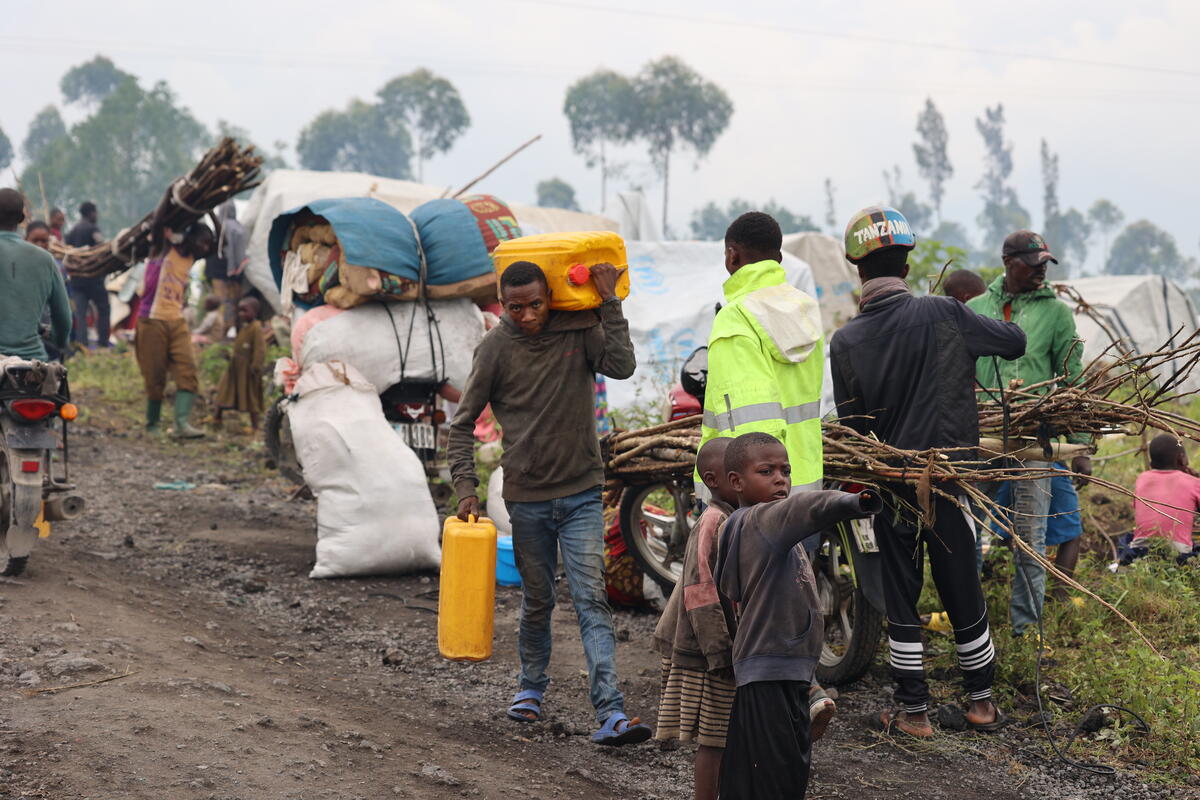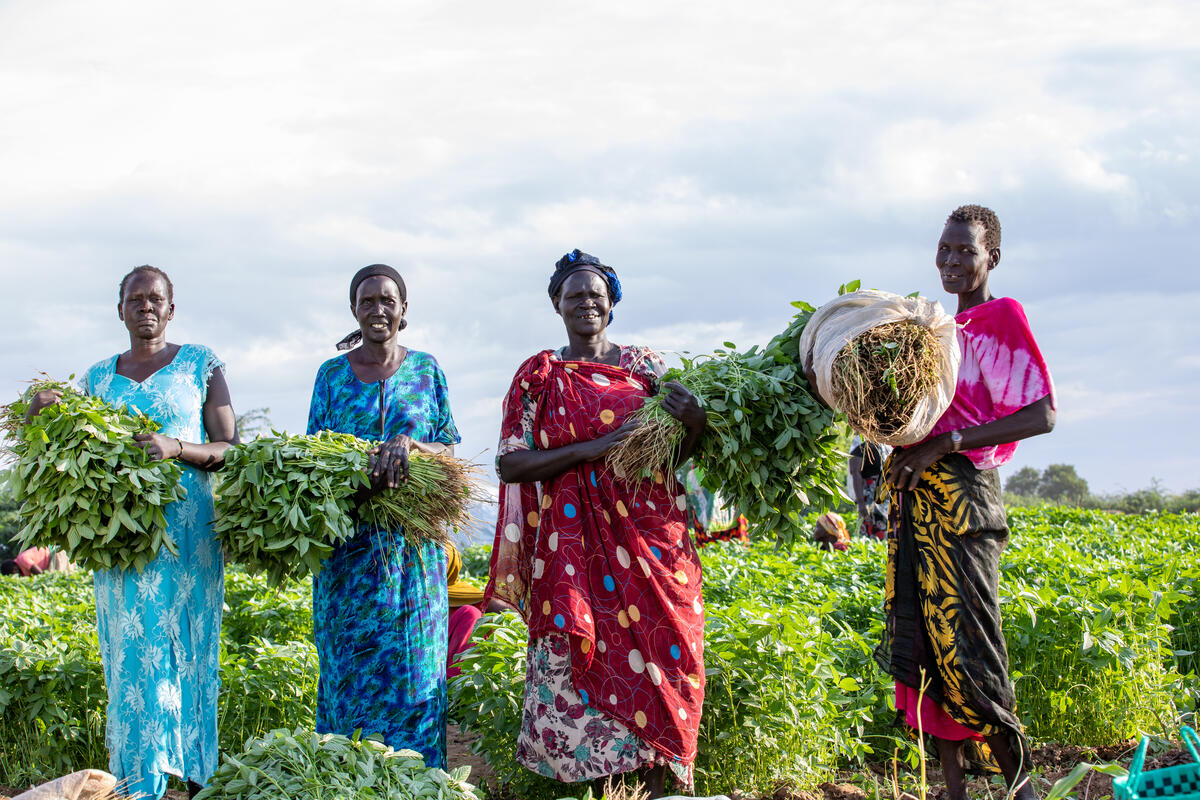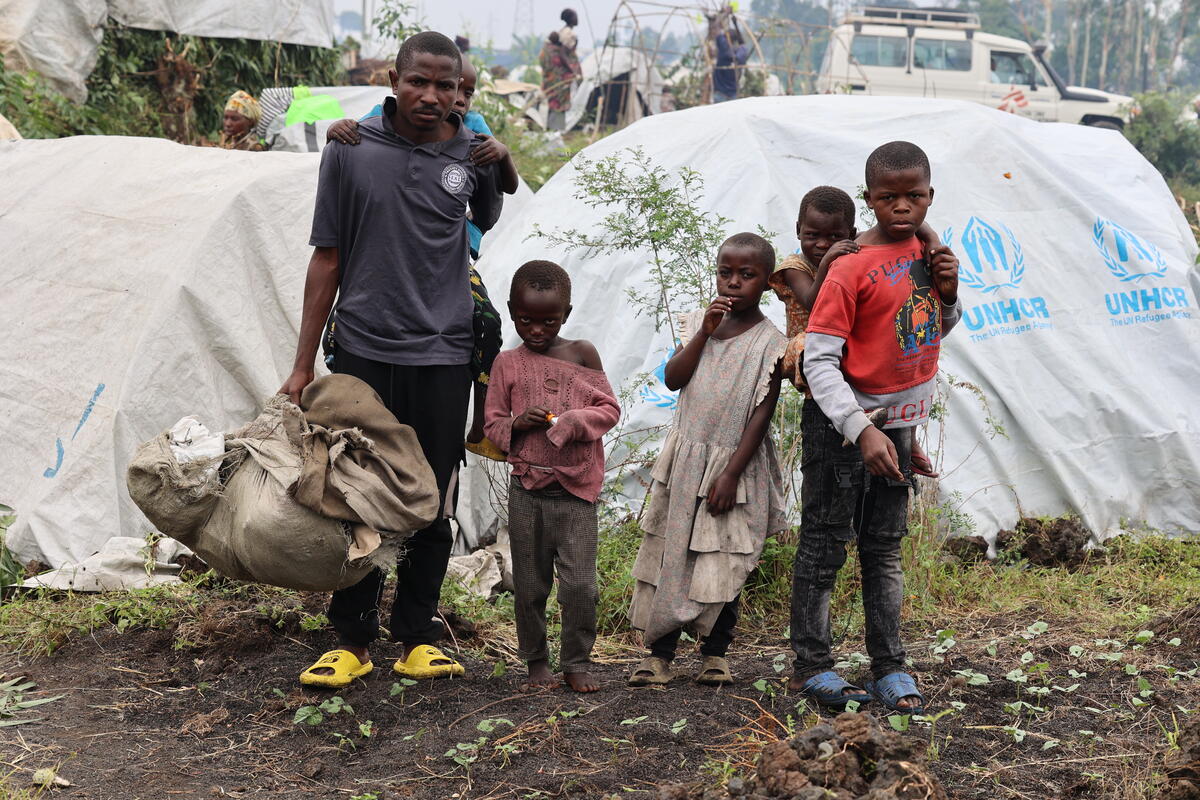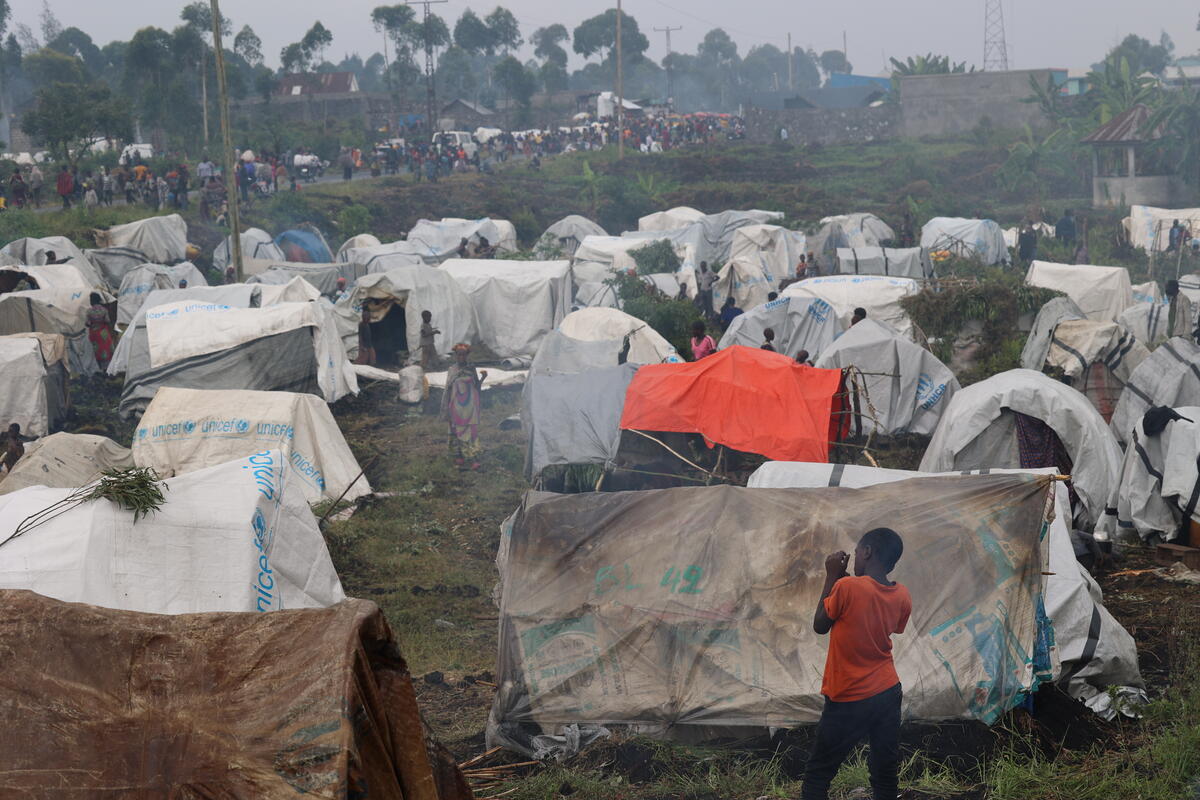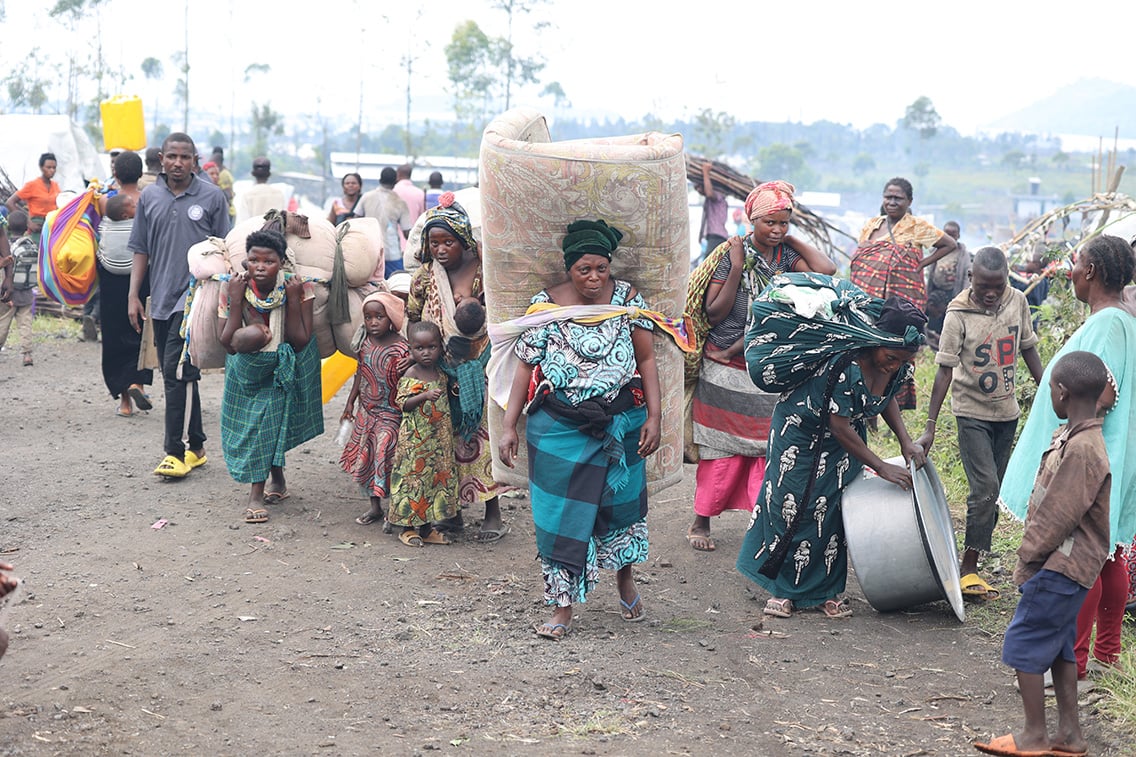Angolan refugees flee to Democratic Republic of the Congo
Angolan refugees flee to Democratic Republic of the Congo
KINSHASA, DR Congo, Oct. 2 (UNHCR) - Fresh fighting in northern Angola has sent a new wave of Angolan refugees into the Democratic Republic of the Congo (DRC). More than 3,000 Angolans have already arrived in the DRC town of Kimvula and nearly 250 more are arriving daily.
The new movement comes barely two months after more than 15,000 refugees fled to the DRC following a UNITA rebel attack on a northern Angola town.
In the latest influx, more than 3,000 Angolan refugees have arrived in the DRC town of Kimvula since mid-September, fleeing more fighting between Angolan government forces and UNITA at Kimbindi, in the north of Angola's Uíge Province. Kimvula is 30 kms north of Angola's northern border with the DRC.
UNHCR teams at the border town report that nearly 250 refugees are arriving daily in Kimvula, which already had close to 9,000 refugees from an earlier influx in August. The refugees who arrived during August were awaiting transfer to sites away from the border.
UNHCR has begun to register the latest group of refugees in preparation for their transfer, along with the earlier groups, to settlement sites allocated by DRC local authorities. UNHCR is also negotiating for two additional sites to settle the most recent arrivals. Local authorities had earlier allocated three sites for the previous group.
UNHCR specialists have been deployed to the new sites, some 60-80 kms from the border, and have begun to demarcate parcels for distribution to the refugees. Refugee families transferred to the area will receive 2-3 hectares of land for basic subsistence farming. The families will also receive initial food and household supplies.
The latest influx brings to close to 200,000 the number of Angolan refugees in the DRC.


